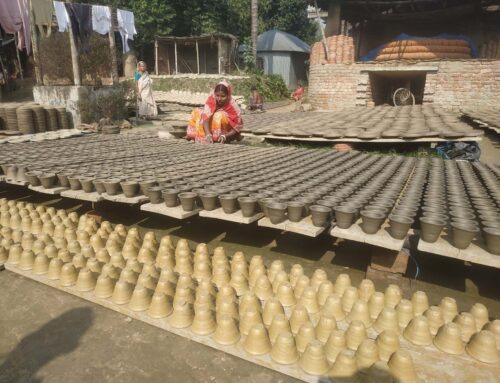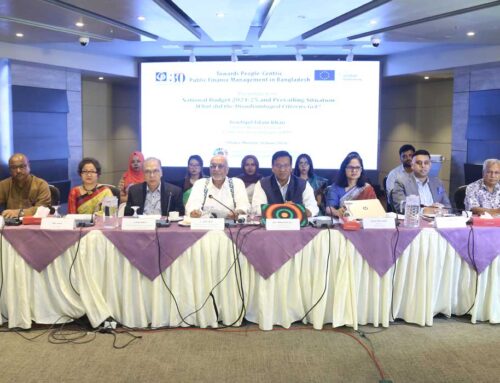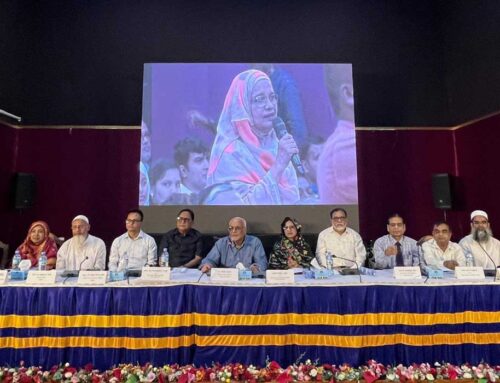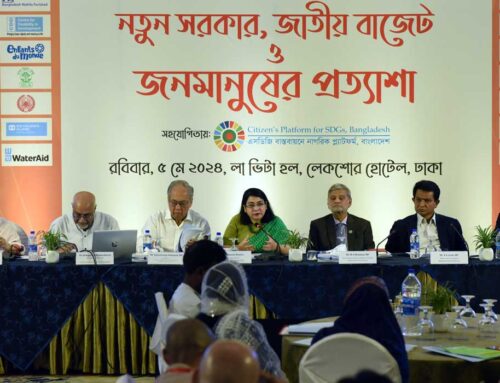
The economic impact of COVID-19 has been far more profound compared to the health and social-related impacts for the marginalised population in Bangladesh. Apparently, all marginalised groups (LNOB and PNOB) could not fully recover from the deceleration of income and expenditure. A large number of households are likely to fall into a debt trap and lost their savings. In the upcoming national budget, explicit fiscal allocation (under social safety net programmes and beyond) has to be done for these marginalised groups. Fiscal incentives for corporate and private donations for a Social Solidarity Fund for COVID-19 may be considered, based on public-private partnership and with real-time digital reporting.
Citizen’s Platform for SDGs, Bangladesh conducted a survey of about 1,600 households across Bangladesh back in February 2021, covering ten marginalised groups where information was collected through face-to-face interviews. The survey finds that, on average, the marginalised groups experienced a 15.8 per cent drop in income while their expenditure declined by 8.1 per cent in February 2021 compared to March 2020. About 78.8 per cent of these households faced financial hardship due to the COVID-19 pandemic, of which 78.5 per cent did not recover. About 60.8 per cent of the surveyed households had to opt for loans, and it may take about two years to repay these loans.
The findings of the survey were presented at the virtual media briefing on Marginalised Communities in Bangladesh Dealing with Pandemic Fallouts: Findings from a Household Survey on 8 April 2021.
In his keynote presentation, Mr Estiaque Bari, Senior Analyst of the study team, stated that among the ten marginalised groups covered for the survey, MSME (micro, small & medium enterprise), PWD (persons with disabilities), Coastal and Slum were found to be more susceptible in terms of economic impacts. Combined support coverage of the non-state actors (family, friends and neighbours; NGOs and private charity) has been higher than the government support. The new surge of COVID-19 and subsequent restrictions as policy response likely to pose new challenges for recovery. These groups will need support to meet their recurrent expenditures, loan repayment and business restart investment. There is a need for medium-term (at least three years) public policy support to the marginalised groups.
Convenor of the Citizen’s Platform and Distinguished Fellow, Centre for Policy Dialogue (CPD) Dr Debapriya Bhattacharya stated that the impact of the pandemic on marginalised people is greater than the impact at the national level. COVID-19 influx came multidimensionally not only in employment but also in income and savings. Long term impact on malnutrition, violence and school dropout are also observed in the marginalised groups. A mid-term national plan connecting LG (local government), LA (local administration) & NGOs would help to remedy the situation.
The press briefing is being organised as a part of the Platform’s research and outreach initiative on Strengthening Citizen’s Engagement in Delivering SDGs in view of COVID-19 pandemic, in partnership with United Nations Development Programme (UNDP), ActionAid Bangladesh, Canada Fund for Local Initiatives, Centre for Policy Dialogue (CPD), Christian Aid in Bangladesh, Friedrich-Ebert-Stiftung (FES) Bangladesh, ICCO Cooperation, Plan International Bangladesh, and WaterAid Bangladesh.
Professor Mustafizur Rahman, Distinguished Fellow, CPD and Core Group Member of the Citizen’s Platform and Mr Towfiqul Islam Khan, Senior Research Fellow, CPD also spoke at the virtual event. The media briefing ended with a Q&A segment for the journalists after the presentation.





